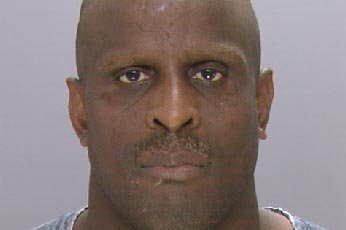It has been one year since transgender woman Diamond Williams was brutally murdered — but, unlike several unsolved homicides of local transgender women, Williams’ alleged killer is in custody.
The day before the one-year anniversary of Williams’ murder, a judge found that Charles Sargent is competent to proceed to a preliminary hearing.
A number of community members gathered Wednesday at the Criminal Justice Center for the status hearing, which was delayed more than three hours. Sargent was in attendance, dressed in a suit and having lost considerable weight.
A preliminary hearing had been postponed numerous times due to concerns about Sargent’s mental competency.
At Wednesday’s proceeding, Sargent told Judge Marsha Neifield he had not been interested in a psych exam. Neifield asked him a series of questions to gauge his mental capacity, including asking him to identify her and his attorney, J. Michael Farrell, and describe their roles in the case.
Sargent properly identified both parties. Neifield said she was “satisfied” with his answers and that a preliminary hearing will be scheduled for sometime later this month.
Investigators say Sargent, 44, killed Williams July 17 of last year in a house on the 2100 block of North 32nd Street.
Sargent was arrested three days later and charged with murder, as well as possession of an instrument of crime and abuse of a corpse. He has been held at Curran-Fromhold Correctional Facility since.
Investigators say the pair, who was reported to have a sexual relationship, got into an argument, prompting Sargent to stab Williams. Sargent reportedly has said the fight stemmed from Williams’ status as transgender. After the stabbing, police records maintain, he dismembered Williams and dumped her remains in an empty lot between York and Sedgely streets.
Williams’ murder follows three unsolved homicides of local transgender women: Nizah Morris in 2002, Stacey Blahnik in 2010 and Kyra Cordova in 2012.
The LGBT community held a number of rallies following Williams’ murder, calling for justice as well as trans visibility and proper representation in the media.
“I learned how quickly the media can spiral out of control in terms of representation and integrity of a person’s life,” said Elicia Gonzales, executive director of GALAEI: A Queer Latin@ Social Justice Organization. “When we read commentary that was using language that we thought was degrading and demoralizing, we knew we had no choice but to mobilize the community and come together to make sure this person’s life was honored the way it needed to be.”
Naiymah Sanchez, director of the Trans-Heath Information Project at GALAEI, said that while community members are relieved Williams’ alleged murderer was quickly apprehended, there is still fear about the defense he will attempt to employ.
“They are happy that someone was held accountable,” Sanchez said. “A lot of people are scared that he will get off with the trans-panic defense. They don’t want to see that happen. We are still mourning over Kyra and the other girls throughout the United States that have been murdered.”
Gloria Casarez, the city’s director of LGBT affairs, said she expects the community to mobilize for justice for Williams.
“I do expect as we go into the trial, it will rally people to seek justice because we haven’t had a viable way to seek justice for Kyra or Stacey or Nizah and we know that as time progresses, that is a difficult thing to have,” she said. “We have a chance with this case. We are going to do our best to make sure this trial has the attention and the judge knows the community cares about the outcome of this case. He invoked a very typical defense, which was the ‘she tricked me’ defense. We can’t let that happen. That is not a defense.”
Sanchez said TIP continues to keep its clients, especially those in the sex-work industry, cognizant of dangerous conditions.
“We tell the girls about Diamond’s murder and the way she was found. We try to keep it real with them,” she said, noting that Mazzoni Center’s Sisterly Love program recently held a self-defense class for transgender individuals. “People are getting murdered every day, no stopping that. The law or police can’t stop stuff they cannot see. You can’t lock every sex worker up because they could get murdered. I don’t know if there is anything that can be done, just keeping awareness about situations like this.”
GALAEI, Gonzales said, has worked to provide outreach to marginalized sectors within the LGBT community, including advocating for trans folks who are incarcerated.
She noted that positive trans-centric media coverage could foster a more accepting environment.
“We have to honor trans people as people and recognize that the resilience and strength of the community is unparalleled,” she said. “I think we really need to start focusing on the strength and assets and great contributions of the trans community so they can see themselves reflected in these stories.”
In the wake of Williams’ murder, Casarez said, good conversations and practices have begun but more progress is needed.
“It needs to be community-driven,” she said. “When the community comes together, things happen. I am looking forward to seeing a resolution in this case and I do think it will be important for us to be present [during the trial] so change can happen. It is about respecting Diamond’s life. Her life mattered and we need to make sure that is communicated and that is clear.”
